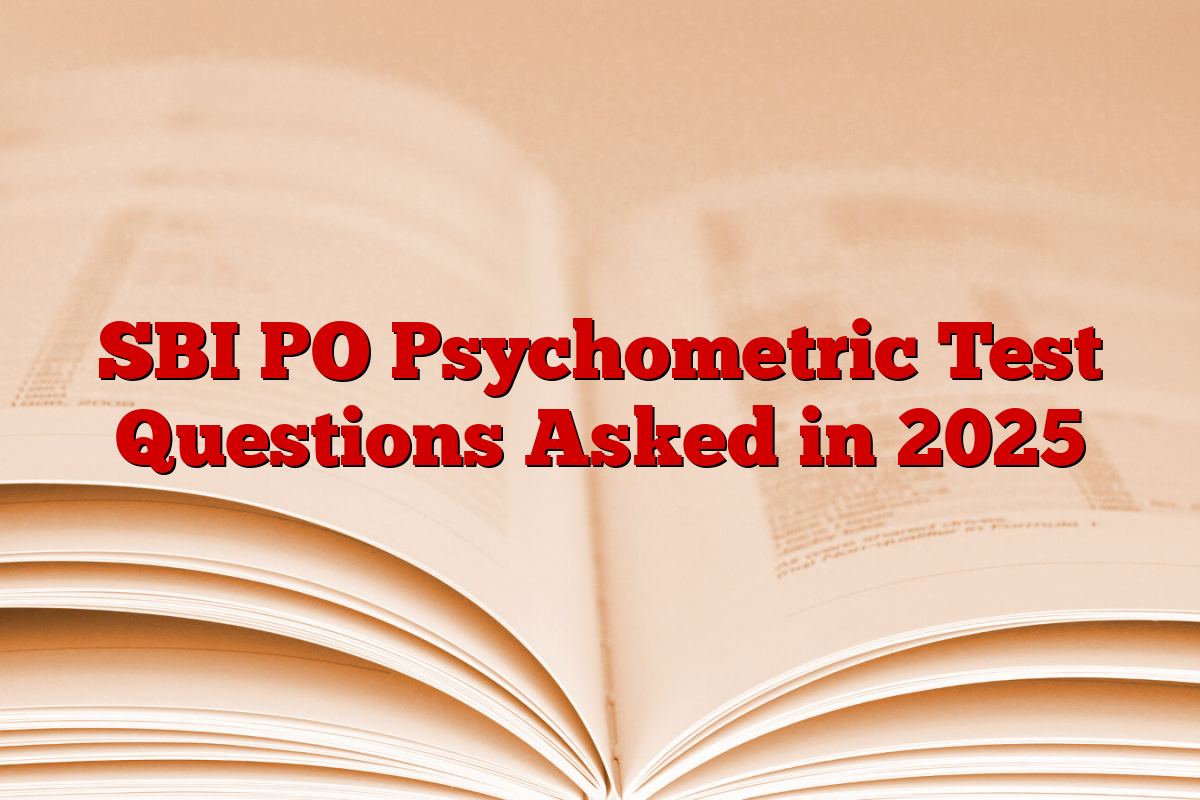SBI PO Psychometric Test 2025 was introduced to examine the personality symptoms of a candidate and how they behave in various situations. This test helps State Bank of India to understand whether a candidate is perfect fit for the role of an existed officer. This is not like a regular exam with the right or wrong answers. Instead, it checks how you think, decide, and respond to challenges. In this article, we will see the types of questions asked in SBI PO Psychometric Test 2025.
SBI PO Psychometric Test Pattern 2025
SBI PO Psychometric Test 2025 contains various segments that focus on the behavior personality and cognitive skills of values. Each part has a fixed number of questions and the entire test is to be completed in 90 minutes. It is important to understand the detailed pattern of the test given in the table below before looking at the questions.
| SBI PO Psychometric Test Pattern | ||
| Stream | Number of questions | Duration |
| Part a | 23 | 90 minutes |
| Part be | 120 | |
| Part s | 10 | |
| Part d | 46 | |
| overall | 199 | |
SBI PO Psychometric Testing Question In 2025
While the exact questions of SBI PO 2025 Psychometric Test are confidential, we have listed some questions below the feedback of the candidates.
Question 1:
I enjoy taking charge during the group discussion.
Option:
A. Agreed strongly
B. agrees
C. neutral
D. Disagree
E. disagree strongly
Question 2:
I find it difficult to work under pressure.
Option:
A. Agreed strongly
B. agrees
C. neutral
D. Disagree
E. disagree strongly
Question 3:
Success is often determined more than hard work than fate.
Option:
A. Agreed strongly
B. agrees
C. neutral
D. Disagree
E. disagree strongly
Question 4:
You are part of a project team that is remembering its deadline. The team leader is absent. What will you do most likely?
Option:
A. Wait for further instructions
B. Take lead and represent tasks
C. Only do your share and avoid conflicts
D. Contact Team Leader for D. Disha
E. Repeat the tasks without informing others
Question 5:
I often reflect my decisions to improve future results.
Option:
A. Agreed strongly
B. agrees
C. neutral
D. Disagree
E. disagree strongly
Question 6:
Is it acceptable to bend the rules if it benefits the organization?
Option:
A. Always
B. often
C. Sometimes
D. Rarely
E. Never

